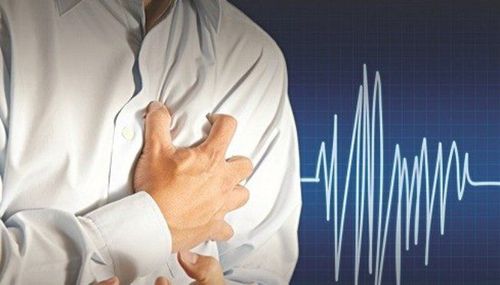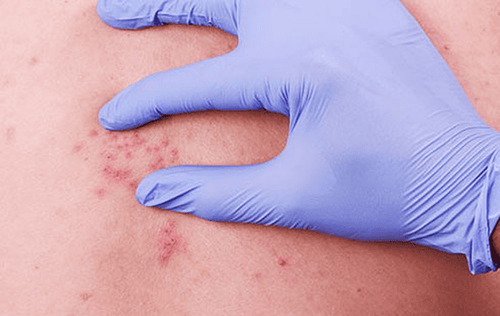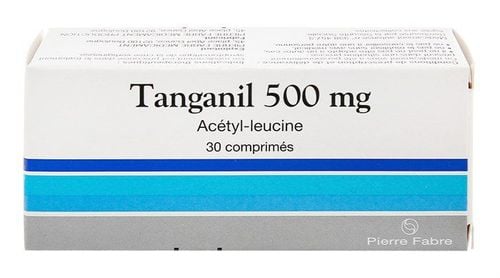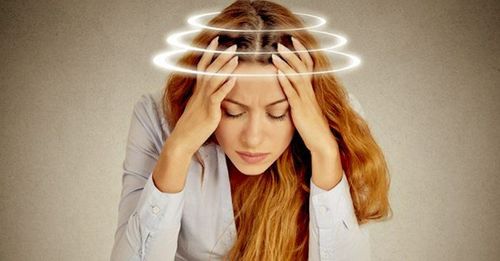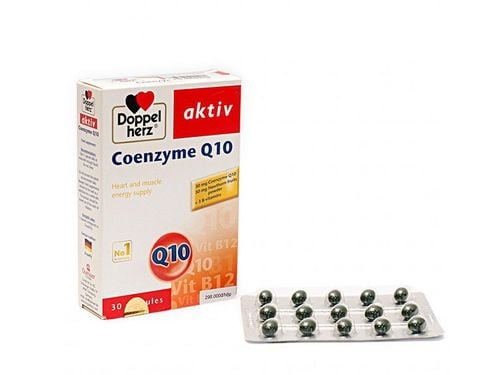Many people experience dizziness before meals due to low blood sugar, which can lead to other symptoms such as blurred vision, dizziness, or exhaustion, especially when feeling hungry. Dizziness after eating is less common but can occur due to certain medical conditions or sensitivity to specific foods.
1. Causes of dizziness after eating
Some medical conditions can cause dizziness after eating. However, sometimes simply standing up abruptly after sitting for a long meal can lead to sudden changes in blood flow and fluid volume, causing temporary dizziness.
1.1 Postprandial hypotension
Postprandial hypotension occurs when blood is diverted to the stomach and intestines for digestion, reducing blood flow to other parts of the body. This causes an increase in heart rate to pump blood to other areas, and blood vessels constrict. Both factors can make a person feel dizzy after eating. About one-third of older men and women experience this condition. Besides dizziness, individuals with postprandial hypotension may also have the following symptoms:
- Chest pain
- Fainting
- Nausea
- Vision changes
In rare cases, postprandial hypotension can cause minor strokes, also known as transient ischemic attacks.
Currently, doctors have not found a definitive cure for postprandial hypotension, but lifestyle and dietary changes can help reduce the occurrence of the condition.

1.2 Nondiabetic hypoglycemia
Nondiabetic hypoglycemia is a rare condition that can cause dizziness after eating due to a sudden drop in blood sugar levels. Additionally, those with non-diabetic hypoglycemia may experience reactive hypoglycemia, where blood sugar levels drop instead of rising after eating.
While the exact cause is not well understood, it is suspected that certain foods might trigger excessive insulin release, leading to low blood sugar after meals. Insulin is a hormone responsible for reducing blood sugar levels by allowing glucose to enter cells to provide energy. When blood sugar drops too quickly (as in non-diabetic hypoglycemia), dizziness occurs.
Other symptoms of non-diabetic hypoglycemia include:
- Confusion
- Dizziness or headache
- Anxiety
- Feeling very sleepy
- Hunger
- Irritability
- Shakiness
- Sweating
Treatment options include surgery or medication, though dietary changes can help manage blood sugar levels. Doctors recommend frequent post-meal blood sugar monitoring and consuming light snacks when necessary.
1.3 Dizziness triggered by diet
Sometimes, food itself can cause temporary or chronic dizziness. For instance, certain foods are linked to migraines, and one common migraine symptom is dizziness.
Examples of foods that may trigger migraines include:
- Alcohol
- Chocolate
- Dairy products
- Foods containing monosodium glutamate (MSG)
- Fermented foods
- Nuts
Consuming caffeinated beverages like coffee or soda may also contribute to dizziness, as individual caffeine sensitivity varies.
Caffeine, being a stimulant, increases heart rate. Those with heart-related issues or older adults may not tolerate these changes in heart rate, leading to dizziness.
People with conditions like vertigo or Ménière's disease may also experience worsened dizziness after consuming such foods. Additionally, foods high in sodium, alcohol, and other specific items may exacerbate migraines.
2. When should you see a doctor for dizziness after eating?
Call 115 or go to the nearest medical facility if you or someone else experiences symptoms such as:
- Chest pain
- Confusion
- Cognitive changes
Dizziness increases the risk of falls and accidents, so it is important to seek medical attention for persistent dizziness after meals to identify the cause and receive appropriate treatment.
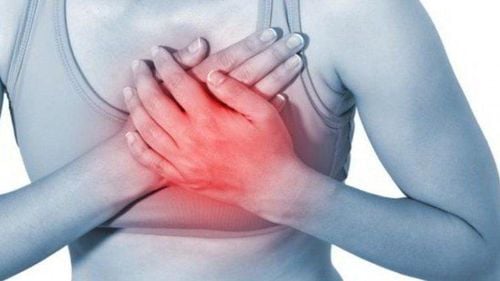
3. What should you eat for Dizziness?
Treatment for dizziness after eating depends on the underlying cause. Therefore, it’s crucial to consult a healthcare provider for diagnosis before adopting any treatment approach.
For example, in cases of postprandial hypotension, the following measures may help:
- Opt for foods that take longer to digest, such as whole grains, fruits, and vegetables. Limit high-sugar and refined carbohydrate foods (like white bread, white rice, and potatoes) as they digest quickly and may increase the risk of postprandial hypotension.
- Drink plenty of water, especially before meals. Consuming one or two glasses of water can increase blood volume and reduce the risk of low blood pressure.
- Eat smaller meals throughout the day to reduce the burden on your digestive system and lower the risk of post-meal dizziness.
- Avoid standing up suddenly within an hour after eating, as this is a critical period for post-meal dizziness.
- Stay away from foods that may trigger dizziness, such as caffeine, alcohol, and high-sodium items.
- If dizziness is caused by food allergies or sensitivity, avoid those foods. If you are unsure which foods are causing the problem, consult a doctor about an elimination diet to pinpoint the exact trigger.
Please dial HOTLINE for more information or register for an appointment HERE. Download MyVinmec app to make appointments faster and to manage your bookings easily.
Article referenced source: healthline.com
To arrange an appointment, please call HOTLINE or make your reservation directly HERE. You may also download the MyVinmec app to schedule appointments faster and manage your reservations more conveniently.
